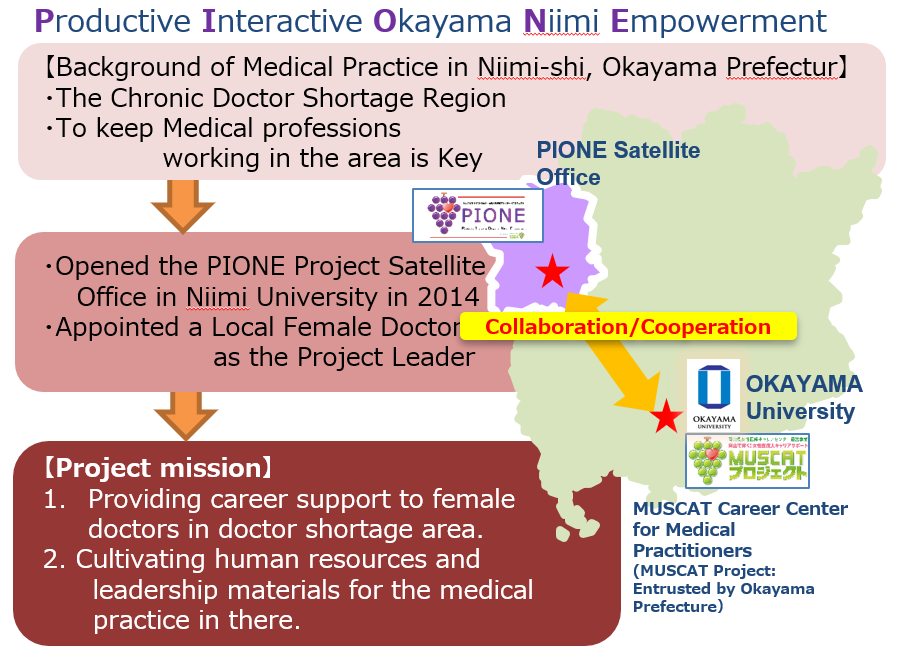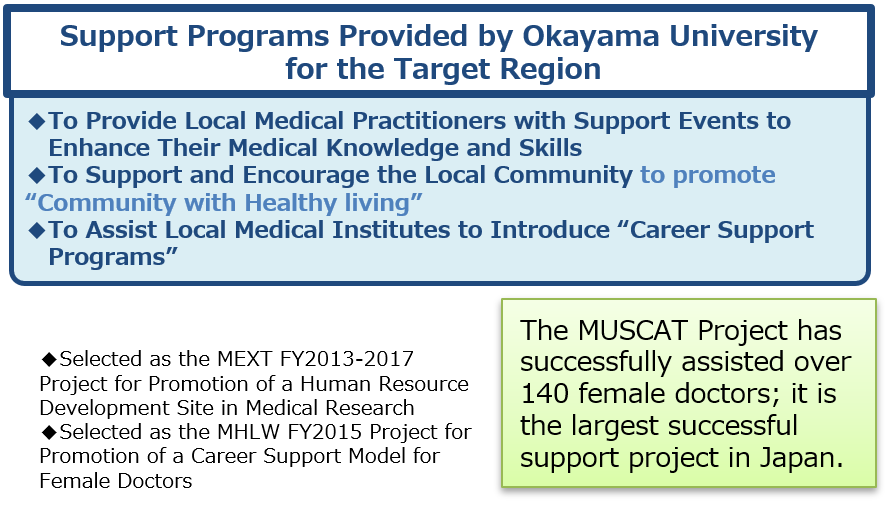Example
Support Program for Medical Practitioners in the Northern Area of Okayama Prefecture (PIONE&MUSCAT)
Social Background
As the number of female doctors has increased in recent years (30% of young doctors are female), the importance of preventing them from leaving the medical profession due to life events such as child care, as well as supporting them to return to their professional jobs, has drawn much attention. Since 2007, Okayama University has been conducting the career support program for female doctors called the Medical Professions Universal Support and Career Development with Active Teamwork (MUSCAT) Project, and successfully supported over 140 doctors (as of March 2019); this is an outstanding achievement in Japan. We are now planning to expand the program by providing career development support in regions with doctor shortages to resolve various issues in the community.
Project Goals and Objectives
Our goal is to tackle the issues in the communities of regions with few doctors (Niimi-shi, Okayama Prefecture) by providing career development support program for female doctors and medical staffs to prevent them from leaving their jobs as well as to support them to return to their professional jobs in spite of their life events.
Project Outline
In 2014, we launched a support project called the Productive Interactive Okayama Niimi Empowerment Project (PIONE Project) to assist female doctors and medical staffs in the northern area of Okayama Prefecture, by appointing a local female doctor as the project leader and setting up the PIONE satellite office at Niimi University. The doctor works both at Okayama University Hospital and Niimi-shi, determining the actual needs in medical practice and collaborating with the MUSCAT Career Center. Through our collaboration, we have successfully been able to: 1) hold a series of hands-on seminars in Niimi-shi to enhance medical skills and knowledge by using the latest educational equipment (e.g., simulators) as well as conduct online remote lectures connecting Okayama University and Niimi-shi; 2) hold general public participation-type symposiums open to the local population to determine public needs; and 3) establish a career support system (e.g., flexible working shifts) in the medical institutes of Niimi-shi.
Expected effects
We are expecting that our support project will encourage female medical professions to remain in the clinical field and improve their working environment in total. As for Niimi-shi, we are expecting the program to improve the overall situation in providing medical services. In fact, we have received reports that show a decrease in the number of emergency transports to other cities from Niimi-shi; we are expecting further improvements in the future.


